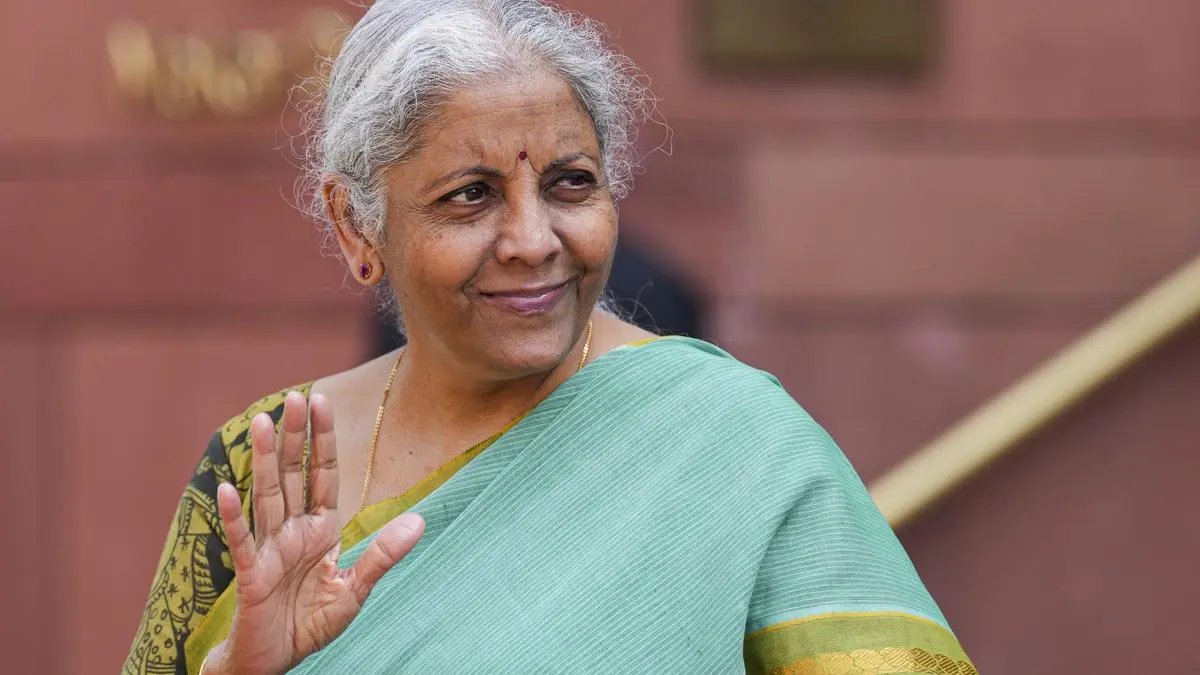We can’t be passive spectators in a world where decisions elsewhere determine our destinies: FM Sitharaman


Union Finance Minister Nirmala Sitharaman (file photo)
| Photo Credit:
PTI
In a pointed response to Trump’s tariff tantrums, Finance Minister Nirmala Sitharaman on Friday asserted that India can’t remain a passive spectator in a world where decisions elsewhere determine its destinies. She emphasised that India’s rise as a stabilising force is neither accidental nor transient.
Addressing the 4th edition of the Kautilya Economic Conclave, Sitharaman said history teaches that crises often precede renewal. “The fragmentation we see today may give rise to more sustainable and unforeseen forms of cooperation. The challenge is to ensure that inclusive principles shape cooperation,” she said.
She further stressed that for developing countries, this is a necessity, not just a romantic aspiration. “We cannot afford to be passive spectators in a world where decisions elsewhere determine our destinies. We must be active participants, shaping outcomes where possible and preserving autonomy where necessary,” she noted.
The India growth story
Highlighting India’s sustainable growth story, she said: “India’s rise as a stabilising force is neither accidental nor transient; instead, it results from a powerful combination of factors”. Over the past decade, government’s focus on fiscal consolidation, improved quality of capital expenditure, and reining in inflationary pressures has been consistent. “We have implemented strategic reforms that enhance the ease of doing business, promote financial inclusion, and improve the quality of life for the average citizen in the country,” she said. With the steady share of consumption and investment in the overall GDP over the years, India’s growth is firmly anchored in its domestic factors, which minimises the impact of external shocks on overall growth.
As a result, the Indian economy is resilient and continues to grow sustainably. However, just as eternal vigilance is the price of liberty, eternal performance is the price of strategic independence. “There is no room for complacency or self-congratulation beyond a quiet confidence in our abilities to take the right decisions and execute them,” the Minister said.
‘Dislocations define this era’
Talking about present time, she reminded that calling the present time as ‘turbulent’, in some sense, would be to understate the scale of the challenge at hand. Dislocations define this new era. The international order is morphing. Trade flows are being reshaped, alliances are being tested, investments are being rerouted along geopolitical lines, and shared commitments are being re-examined. Thus, “what we face is not a temporary disruption but a structural transformation,” she said.
Sitharaman highlighted that for many smaller developing nations, the current geopolitical environment poses fundamental questions. To be sure, there are risks and opportunities. She asked whether the world remain unipolar, or is this the beginning of a truly multipolar age? “If multipolarity is our future, what shape will it take? Will it be one of cooperative pluralism, where different models coexist, or will it harden into rival blocs and spheres of influence, forcing nations to pick sides? History offers no guarantees, but the possibility of a fragmented world, with multiple centres of power, and competing values appears more likely,” she said.
According to her, these trade-offs are accentuated in a world with trends towards derisking, decoupling, and, hence, slowing globalisation. Globalisation, economic integration, and immigration are not natural states of affairs; they can unravel under pressure as they have in the past. Today, “we find ourselves in a shifting global landscape that resembles a zero-sum approach, in part, a consequence of the failures and limitations of the era of globalisation that preceded it,” the Minister said.
Published on October 3, 2025


